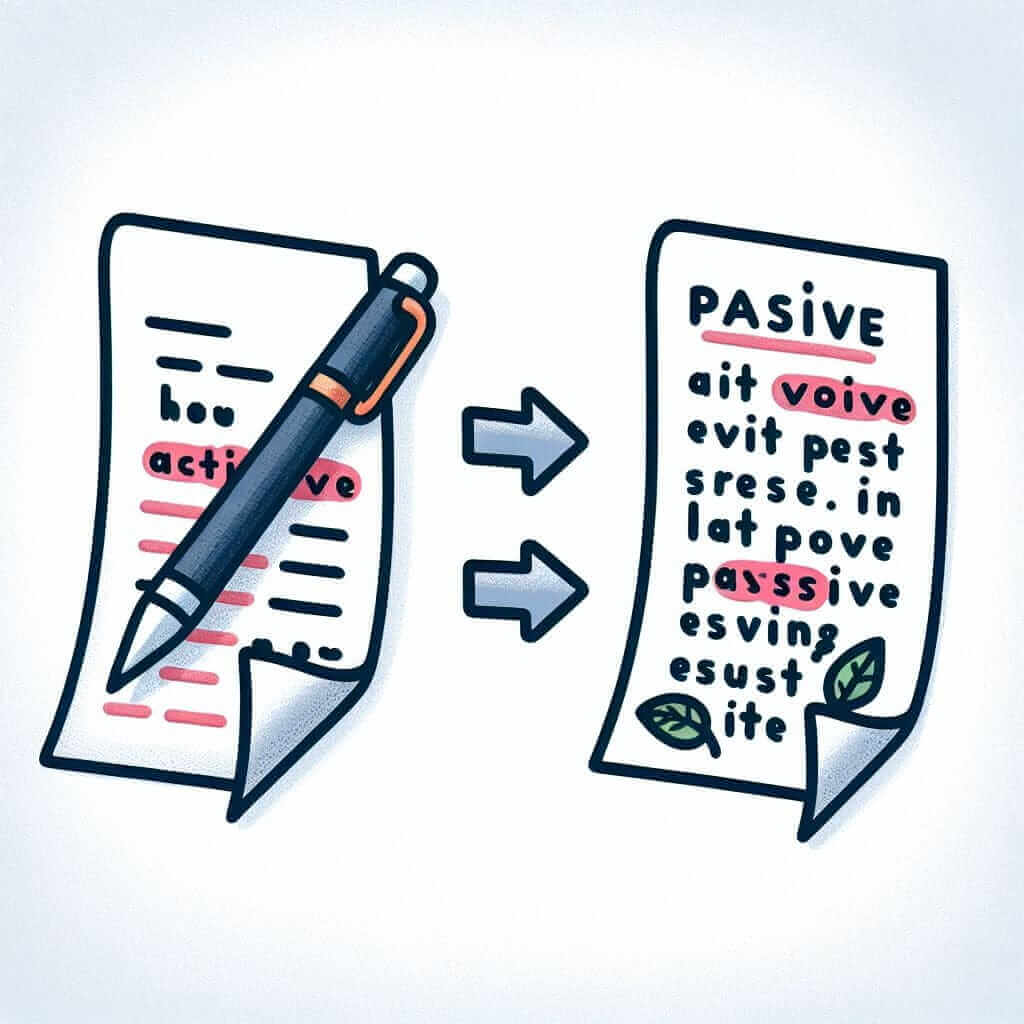The Power of the Passive Voice in IELTS Writing
As an IELTS instructor with over 20 years of experience, I’ve witnessed firsthand how mastering the passive voice can significantly elevate your writing score. While many candidates shy away from it, fearing grammatical errors, understanding its strategic use can be a game-changer. The passive voice is not about complexity; it’s about clarity, objectivity, and sophistication in conveying your ideas.
When to Use the Passive Voice Effectively
The million-dollar question! Here’s the secret: the passive voice shines when the action is more important than the doer, or when the doer is unknown or implied. Let’s break it down:
1. Shifting Focus to the Action
Consider these examples:
- Active: The government implemented new policies to combat climate change.
- Passive: New policies were implemented to combat climate change.
In the passive version, the emphasis shifts to the “new policies” and their impact, subtly highlighting the significance of the action itself.
2. Maintaining Objectivity
Especially in Task 1 (Academic) when describing graphs, charts, or processes, the passive voice helps you present information impartially:
- Active: Researchers observed a significant increase in online sales.
- Passive: A significant increase in online sales was observed.
The passive voice here eliminates the need to repeatedly mention “researchers,” creating a more concise and objective tone suitable for academic writing.
3. Handling Unknown or Implied Doers
Sometimes, the doer of the action is irrelevant or unknown:
- Active: Somebody stole my wallet!
- Passive: My wallet was stolen!
The passive form naturally handles these situations without needing to invent a subject.
Illustrating with Real-World IELTS Examples
Let’s analyze how the passive voice plays out in actual IELTS Writing tasks:
Task 1: “The graph below shows the percentage of people using mobile phones in four different countries from 2000 to 2010.”
- Instead of: “People in the UK used mobile phones more than…”
- Use: “Mobile phone usage was higher in the UK than…”
Task 2: “Some people believe that children should be allowed to use mobile phones in school. Others believe that mobile phones should be banned from schools. Discuss both views and give your own opinion.”
- Instead of: “Schools should ban students from using…”
- Use: “The use of mobile phones by students should be prohibited…”
See how the passive voice adds a touch of formality and sophistication to your writing?

Tips to Ace the Passive Voice
- Practice Makes Perfect: Regularly rewrite sentences in the passive voice to internalize its structure.
- Variety is Key: Don’t overuse the passive voice. Aim for a balanced and natural flow in your writing.
- Tense Awareness: Remember that the passive voice can be used in all tenses. Pay attention to verb conjugation!
- Proofread Carefully: Ensure your passive constructions are grammatically sound.
Conclusion: Empower Your Writing with the Passive Voice
Mastering the passive voice is not about complicating your writing; it’s about choosing the most effective way to convey your message. By understanding when and how to use it, you’ll add a layer of academic finesse to your IELTS essays, impressing the examiners and boosting your chances of achieving a higher score. So, embrace the power of the passive voice and watch your writing shine!